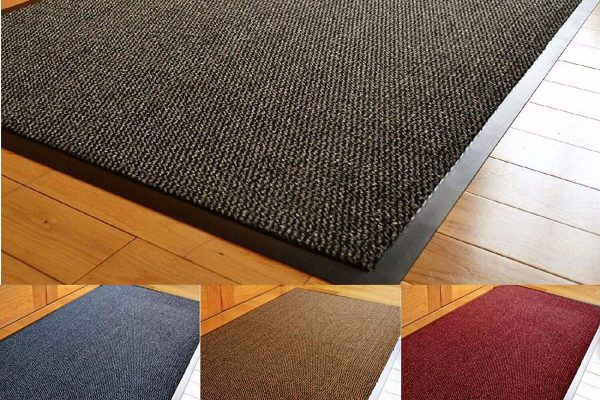Shopping online has never been more popular. However, that doesn’t mean that the brick and mortar business has gone the way of the dodo. Each type of business plays a major part of our economy, and there is a lot of money to be made for running either type well.
If you are an online shop looking to go “physical”, or vice versa, then it’s important that you understand the differences between them when it comes to insurance. Each retail model has its own needs, and it’s your job as the owner to make sure that your business is properly protected. Here is a quick guide to how insurance needs differ between brick and mortar and ecommerce outlets.
Table of Contents
Business Insurance Overview
No matter what type of business you own, you need to have insurance. There are many things for which you need to be protected against. You should have general liability for any lawsuits that you might face. Workers’ compensation coverage is a legal requirement in all but one state. Operate a fleet of vehicles? Then you’d better have commercial automobile insurance to cover that fleet. Your personal policy will not provide protection. If you have any type of property, whether it be a premises where you work, equipment, or inventory, then commercial property insurance is a must. Professional liability will provide you with coverage if you’ve made a mistake that has led to customer loss.
You never know when you might need the protection of any of these coverages. If you don’t, then your business could be in big trouble in an instant if something bad happens. If you have to pay out all of the expenses for any one of the hazards that your insurance would cover, then it could reach into the hundreds of thousands or even millions of dollars. Most businesses are not able to withstand such a sudden cost. If you are in a common industry, you might be able to purchase an insurance package that caters specifically to your business type, including gettin tailored professional liability coverage.
General Liability Insurance
In a very broad sense, general liability insurance is meant to provide you with protection and even sue you for negligence. This can happen if someone gets injured on your premises, or their property is damaged. You may also get sued for slander if you say something in the media or in advertisements that a competitor takes exception to. When you have a brick and mortar business, you will certainly need this coverage. As customers come and go, any one of them could get injured, such as by tripping over a frayed rug or banging a head on an open cabinet door.
That said, even if you have an ecommerce business, you still need business liability. You may never get within miles of a customer or a business associate, but that doesn’t mean they can’t sue you. While it is very unlikely that someone gets injured or has their property damaged by you, they can still sue you. If your marketing has perceived dishonesties about another business, they could bring legal action against you, for example.
One of the biggest risks to ecommerce businesses is data breaches. Running an ecommerce website means that you are holding customer data from their purchases. If, either through criminality or an error, that data is released to the public or compromised, you could be held liable. Cyber security insurance will cover you for those costs, along with hiring professionals to help with your public relations issues. Make sure to have this added to your policy if you run an ecommerce outfit.
Commercial Property Insurance
Once again, a brick and mortar business absolutely needs this type of coverage. You have a building, signage, inventory, and equipment all on site. If there is a flood, fire, vandalism, or other hazard that damages any of that property, you need the coverage to help with repair or replacement costs. This coverage will also provide compensation for any downtime your business might suffer. You can still pay the bills while the building is getting repaired and rebuilt.
If you have an ecommerce business and work out of your home, you might be surprised to learn that you also need property insurance. Unless you specifically have it named in your policy, your personal homeowner’s coverage will not include business-related equipment or inventory costs. You will need to have additional coverage to make sure that your computer, printers, and any inventory stored on site are protected.
Commercial Automobile Insurance
If you own a brick and mortar business, there are circumstances where you may need commercial automobile insurance. If you just use a vehicle to go to and from work, then you are fine with your personal property. However, if you have a vehicle that you use to make deliveries or to pick up inventory, then you will have to get additional coverage.
There probably aren’t too many ecommerce businesses that require commercial automobile insurance. However, if you deliver to a local area, and use a vehicle to deliver yourself rather than use a third party that you’ve contracted, then you will require commercial coverage. This is true even if you use your personal vehicle. If you get in an accident doing a delivery and do not have commercial coverage, then you may not be eligible for protection.
Professional Liability Insurance
Whether or not you request professional liability insurance depends more on the type of business that you have, rather than whether it’s in-person or online. This type of coverage does not generally apply to retail businesses. It is coverage for when a mistake or a missed deadline has caused a client to suffer financial loss. You can then provide them with compensation or attempt to defend yourself with legal fees, as long as you have this coverage. This protection is also known as errors and omissions insurance.
Insurance is one of the most important aspects of your business, whether you have a brick and mortal or ecommerce company. Make sure that you have the appropriate coverage for any situation so that your business is properly protected.





